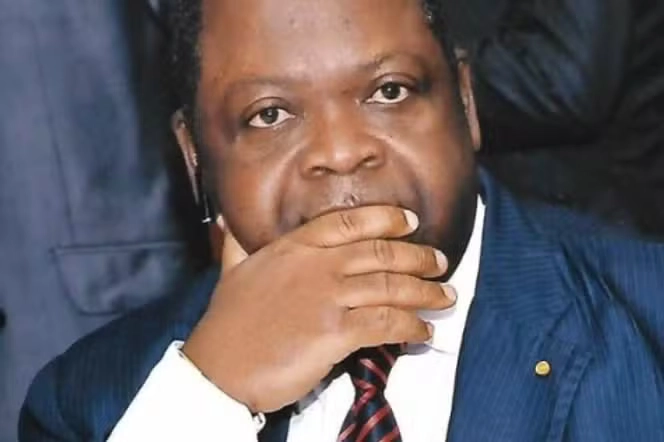In Benin, journalist and editor-in-chief of the newspaper La Boussole, Cosme Hounsa, was arrested on the evening of July 15, 2025 by agents of the National Center for Digital Investigations (CNIN) on charges of “harassment by electronic means.”
Hounsa’s arrest followed a complaint filed by Minister Rachidi Gbadamassi, Advisor on Denfence and Security. The complaint is linked to an ongoing legal case between Paulin Akponna, the current Minister of Energy, Water, and Mines, and his predecessor Samou Séidou Adambi.
During a political rally held in Parakou on June 21, 2025, Akponna publicly accused Adambi of embezzling public funds from the Ministry. In response, Adambi filed a defamation complaint against Akponna.
La Boussole published a series of articles covering the case, which reportedly displeased Rachidi Gbadamassi. According to him, the newspaper’s reporting suggested that he was the one who encouraged Minister Akponna to speak out against Adambi.
Cosme Hounsa was arrested in Parakou, northern Benin, on July 15, 2025. After being held at the central police station in Parakou, he was transferred to the Court for the Repression of Economic Offences and Terrorism (CRIET) in Cotonou on July 16 to answer to the charge of “harassment by electronic means.”
However, July 17, 2025, he was released and placed under summons, meaning he must appear whenever required by judicial authorities, and is expected to appear before the judge again on July 24, 2025.
A day after his release, July 18, 2025, the newspaper posted a public apology on Facebook as follows:
“As a gesture of responsibility, La Boussole wishes to extend its most respectful apologies to Rachidi Gbadamassi. Through this official statement, the editorial team acknowledges that certain analytical elements or formulations may have been interpreted as harmful to the image of the Minister-Counselor.”
The Media Foundation for West Africa (MFWA) welcomes the fact that Hounsa has been released. The organisation, however, calls for all charges against Hounsa to be dropped.
The MFWA also urges authorities in Benin to use rejoinders to set records straight or file complaints with the media regulator for perceived media misconduct rather than resorting to criminal prosecution. The MFWA also calls on the media to be professional at all times.






